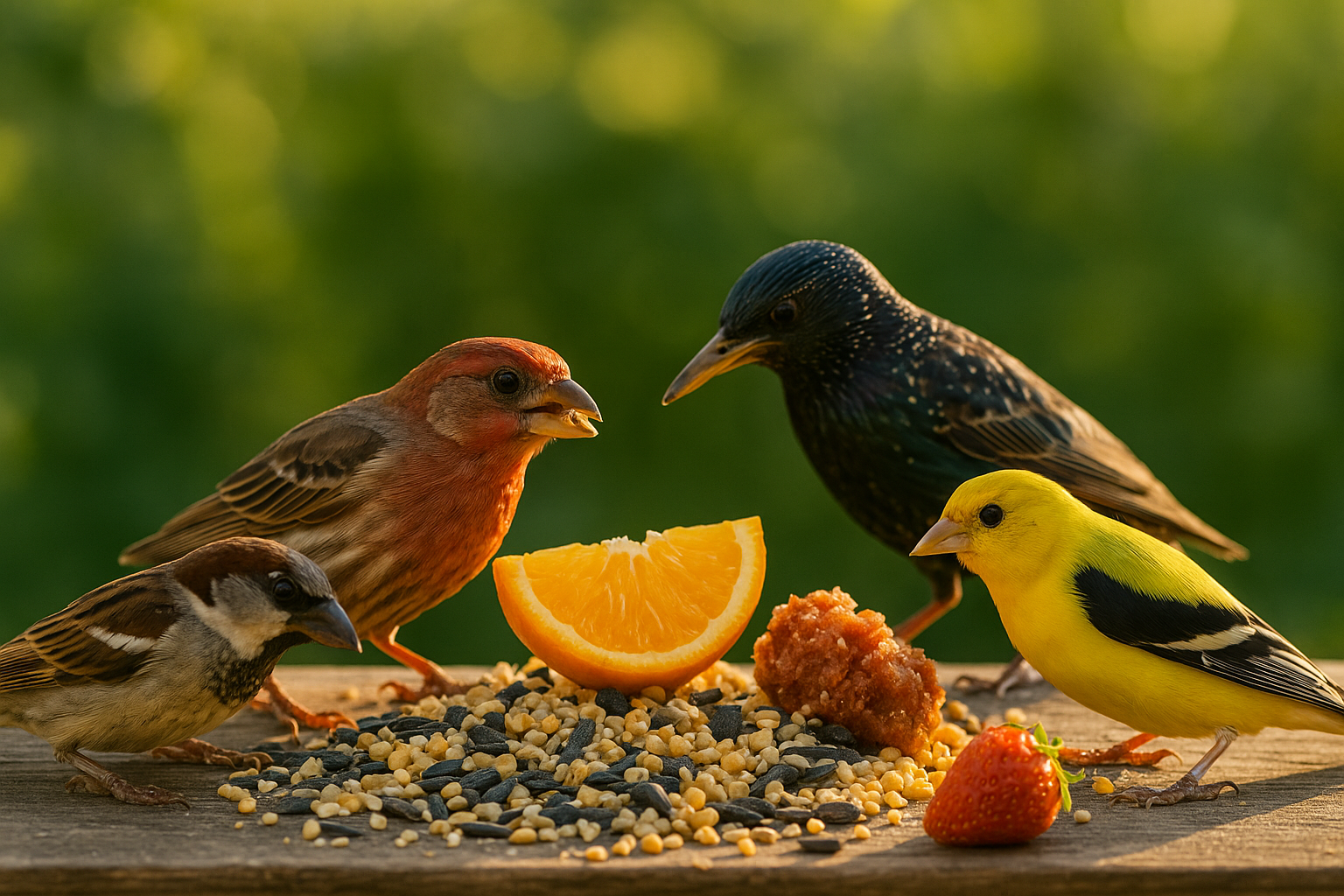As temperatures rise during the summer months, wild birds face unique challenges that affect their feeding habits, hydration, and overall well-being. While it’s easy to assume that birds can always find what they need in nature, the truth is that summer can be a particularly harsh season—especially during heatwaves and drought conditions. Providing the right bird food in summer becomes essential not just for pet birds but for wild ones too.
Whether you’re an avid birdwatcher, a backyard feeder enthusiast, or simply someone who loves nature, understanding what wild bird food works best in hot weather can significantly impact bird health and survival. This guide explores what birds need during the summer, what foods to offer, and how to maintain a safe feeding environment.
Why Summer Feeding Matters
Summer may be abundant with insects and fruits, but rising temperatures and dry spells can reduce the availability of water and essential nutrients in the wild. Birds expend more energy staying cool, feeding chicks, and finding safe shelter. This means they rely more on stable food sources provided by humans to meet their nutritional demands.
Additionally, birds food needs to be adapted for the heat. Spoiled or moldy food can quickly lead to illness, and fatty seeds may go rancid when left in the sun. Offering safe, nutritious, and heat-resistant options is critical.
Top Nutritional Needs of Birds in Summer
When planning to feed wild birds during summer, it’s essential to understand their changing dietary needs. Here’s what wild birds typically require:
1. High-Energy, Non-Melting Foods
Birds still need a high-calorie intake in summer, especially when raising their young. However, avoid suet and other fat-based foods that melt in the sun.
Ideal choices: Sunflower seeds (shelled), mealworms (dried), nyjer seeds
Avoid: Suet cakes unless they are labeled “no-melt”
2. High-Protein Options
Protein supports feather growth and chick development. Offer foods that are rich in protein and easy to digest.
Examples: Dried insects, shelled peanuts, and commercial blends of wild bird food
3. Fresh Fruits and Veggies
Fruits are a great source of hydration and natural sugars for energy.
Good options: Grapes, apple slices, bananas, blueberries
Make sure to change them out daily to prevent spoilage in the heat
4. Hydration Support
Birds need clean water not just for drinking but also for bathing to regulate their body temperature. In extremely dry regions, water can be more valuable than food.
Tip: Place shallow dishes of water near feeding areas and clean them daily
Choosing the Right Bird Food in Summer
✅ Opt for Heat-Stable Blends
Use summer-specific blends of bird food in summer that do not include suet or high-fat content, especially in uncovered feeders. Many pet and wildlife supply stores carry mixes specially formulated for summer.
✅ Use Covered or Shaded Feeders
To keep food from overheating or spoiling, place feeders in shaded areas or use weather-proof feeders with ventilation.
✅ Clean Feeders Frequently
Spoiled food breeds bacteria and mold, which can be fatal to birds. Clean your feeders every 3–5 days with a mild bleach solution and rinse thoroughly.
Pet Bird Food vs. Wild Bird Food in Summer
It’s important to understand the difference between pet bird food and wild bird food, especially when caring for both types.
Pet bird food is formulated for specific species like parrots, canaries, or finches and is not always suitable for wild birds.
Wild bird food, on the other hand, is designed to mimic the natural diet of species like sparrows, robins, finches, and cardinals.
If you are feeding pet birds indoors during summer, make sure their food is kept dry and cool. Avoid placing food or water bowls near sunny windows or warm appliances.
Common Birds You’ll See in Summer (and What to Feed Them)
Bird Species
Preferred Summer Foods
American Robin
Mealworms, chopped fruits
Goldfinch
Nyjer seeds, sunflower chips
House Finch
Sunflower seeds, fruits
Chickadees
Peanuts, suet alternatives
Hummingbirds
Sugar-water nectar (no red dye)
Tips for Safe Summer Feeding
Don’t overfill feeders — offer just enough for a day or two to avoid spoilage.
Install multiple feeders to reduce overcrowding.
Avoid using feeders made of metal which can overheat and burn birds’ feet.
Offer calcium sources like crushed eggshells to help female birds during nesting.
Final Thoughts
Feeding birds during summer is more than just tossing out some seeds—it’s about supporting wildlife when nature sometimes falls short. By offering the right bird food in summer, maintaining clean water sources, and using weather-conscious feeding practices, you play a vital role in the health and happiness of your local bird population.
Whether you’re filling feeders for backyard visitors or caring for indoor companions, always choose high-quality birds food, tailored to their needs. And remember: the right wild bird food at the right time could be a lifesaver during scorching summer days.
FAQs About Bird Food in Summer
Q1. What is the best bird food in summer for wild birds?
The best bird food in summer includes seeds like sunflower hearts, nyjer seeds, dried mealworms, chopped fruits, and heat-resistant blends specifically made for warm weather.
Q2. Can I give pet bird food to wild birds?
It’s not recommended. Pet bird food is specially formulated for domestic birds and may lack the nutritional variety wild birds need. Stick to wild bird food for outdoor feeders.
Q3. How often should I clean bird feeders in the summer?
At least once every 3–5 days. In hot and humid conditions, you may need to clean them even more frequently to prevent mold and bacteria growth.
Q4. Should I stop feeding birds in summer?
No. While birds may find food on their own, hot weather can limit their access to water and fresh, non-spoiled food. Supplementing their diet with clean, safe options is helpful.
Q5. What foods should I avoid giving to birds in summer?
Avoid dairy, bread, chocolate, salty snacks, or suet-based products that may melt. Also, don’t feed spoiled fruits or moldy grains.
